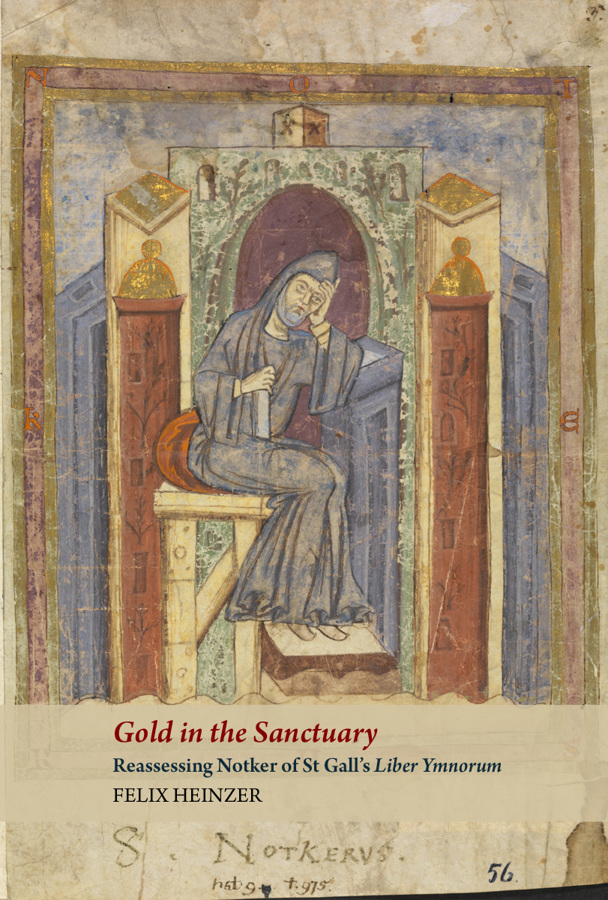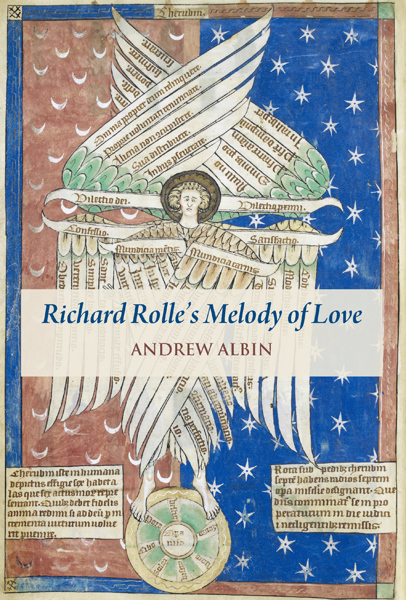
- Pages: 328 p.
- Size:152 x 229 mm
- Illustrations:16 col.
- Language(s):English
- Publication Year:2022
- € 95,00 EXCL. VAT RETAIL PRICE
- ISBN: 978-0-88844-228-4
- Hardback
- Available
“In this rich study of the Liber Ymnorum of Notker Balbulus, Felix Heinzer explores the quality of Notker as a poet composing for the liturgy, using textual and theological analysis to illuminate a major instance of Carolingian creativity. In a first part, Heinzer examines this poetry in its own time, arguing that Notker envisioned his labours as an emulation of the biblical psalms. In a second part, Heinzer traces the long afterlife of the Liber Ymnorum, far beyond the Abbey of St Gall and reaching into the early modern period. At the heart of Heinzer’s broad-ranging contextualization of Notker’s work is his conviction that Notker’s sequences must be considered ‘a valuable part of the premodern literary and religious culture of the Latin West.’ Heinzer is sure-footed in his recognition of musical structures as fundamental to Notker’s creative ideas, while the vividness of his philological and theological analyses offers remarkable new insights.” — Susan Rankin, University of Cambridge
Felix Heinzer retired as Professor of Medieval Latin at the University of Freiburg in 2015. Currently Senior Professor at the Centre for the Study of Manuscript Cultures, Hamburg, he has also been a visiting scholar at the Centre for Medieval Studies and the Pontifical Institute of Mediaeval Studies, Toronto, the University of California, Berkeley, and the Stanford Humanities Center.
Formerly curator of manuscripts at Stuttgart, Württembergische Landesbibliothek (1988–2005), his scholarly interests center on monastic libraries and their holdings, especially in the area around Lake Constance and the Upper Rhine, and on the liturgy and sacred poetry of the Latin Middle Ages. Extensive work in these fields includes Klosterreform und mittelalterliche Buchkultur im deutschen Südwesten (2008), Hermann der Lahme: Reichenauer Mönch und Universalgelehrter des 11. Jahrhunderts, co-edited with Thomas Zotz (2016), and “Medial Ambiguity: Liturgical Books of the Latin Church and Their Changing Status in Mediaeval Tradition,” Manuscript Cultures 10 (2017).
The ninth-century monk and poet Notker of St Gall played a seminal role in the history of the sequence, a distinctly medieval poetic genre of liturgical chant, through his Liber Ymnorum. Notker harkens back beyond the classical Latin and Greek tradition, drawing on Hebrew models; his texts combine theological complexity with poetic invention of extraordinary reach. Despite the opposition his innovations provoked in traditionalist circles, Notker’s sequences were widely adopted. Promotion by the monastery of St Gall and posthumous idealization of the poet ensured the Liber Ymnorum would become a prototypical model for a wide array of imitations in the genre until the late sixteenth century.



